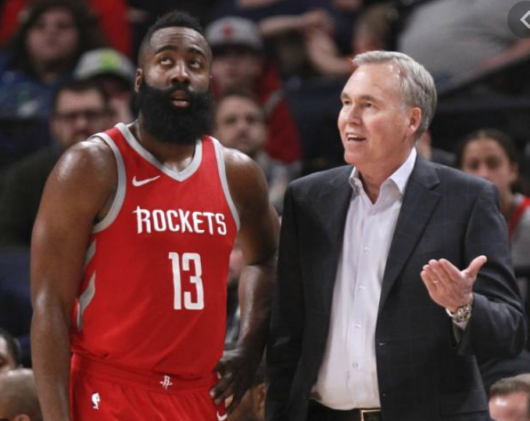The world’s coming to an end, hence it’s time to talk NBA basketball.
In recent years, the Houston Rockets have pioneered a new style of basketball, focusing on the three point shot. Now Houston is innovating again, with small ball.
In the past, small ball was mostly used around the NBA during the last few minutes of close games, when playing well is particularly important. Big, slow, lumbering centers like Rudy Gobert were often ineffective at those times, and sat on the bench.
At the same time, coaches like Gregg Popovich don’t like to adopt these sorts of changes. A game focused on three point shooting is ugly, at least compared to the well-rounded offenses of the past, which incorporated a wide variety of shots. And relying overwhelmingly on the long ball seems intuitively “irresponsible”.
Furthermore, basketball has traditionally been dominated by big men at the center position. The last thing that coaches want to do is go against tradition with small ball.
[BTW, I hope it’s obvious that this post is talking about monetary policy.]
But when other NBA teams have success with a new strategy, then eventually even stubborn coaches must give in and follow along. They may not want to, but they will be forced to.
Here’s an interesting question: Why should coaches ever be reluctant to adopt a new strategy, just because they don’t like it? Isn’t success all that matters? You’d think so, but coaches are conservative by nature. If the tradition is to punt on fourth and one in football, that’s what you do. No one ever got fired for following tradition.
Just as coaches may be reluctant to rely on the three point shot or small ball, central banks may be reluctant to cut interest rates. You might think that the level of interest rates would be a matter of complete indifference—all that matters is whether the policy produces good outcomes. If so, then you are being naive. Central banks have a fondness for certain levels of interest rates, or at least certain expected paths of change, and will only move those rates unexpectedly if “forced” by overwhelming pressure. This leads to inertia in monetary policy, and results in recessions every few years after a long expansion is suddenly interrupted by a sharp drop in equilibrium interest rates.
Check this out:
Recent global developments, including the more rapid spread of the coronavirus outside of China, make it more likely the Federal Reserve will be forced soon to cut interest rates to respond to growth concerns, according to economists gathered for a top policy conference on Monday.
The media’s use of the term ‘forced’ is correct, and is the “tell” that monetary policy is inefficient.
Are there systems that would avoid this damaging inertia? Yes, and we are slowly getting there. Unfortunately, however, we are not quite there yet.
On the plus side, recessions are like airliner crashes; each time one occurs we learn a bit more about safety.
